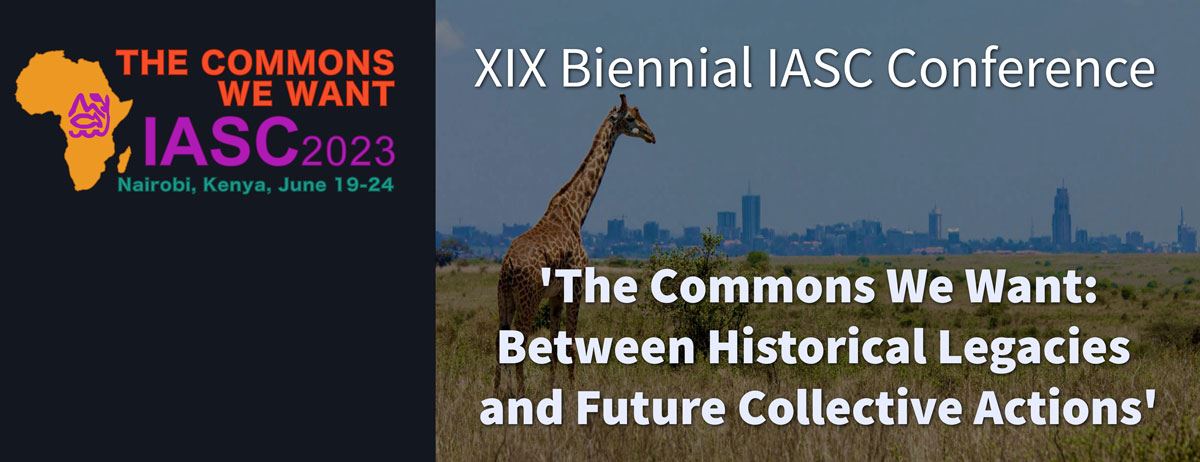The conference registration fees are wage-dependent to make the conference accessible to all income categories. IASC membership is a prerequisite to registering for the conference. If you are not an IASC member yet, please follow this link.
Conference registration will start with early bird registration on February 28, 2023. Full fees will be charged starting April 30, 2023.

AIM & SCOPE
The IASC has been shaping the debate on alternative development pathways by way of putting the commons center stage. In times of profound crises, we have seen states being caught up in emergency mode. This unfolds, among others, in a tendency to respond within national borders, and it has brought the importance of building genuine resilience that leaves no one behind.
In all its diversity, the African continent is particularly exposed to shocks, and the risk of losing decades of development accomplishments is conspicuous. Therefore, in the context of the pandemic, building resilience for a broad range of society has become ever more pertinent, but the framework conditions to do so remain under-discussed. The global IASC conference will open up a space to mobilize this very debate. Taking place at the University of Nairobi, but co-organized with Centre for Integrated Training and Research in ASAL Development CETRAD, the University of Bern (Institute of Social Anthropology ISA, Centre for Development and Environment CDE), and the Swiss Tropical and Public Health Institute Swiss TPH, Basel, Switzerland) and the Swiss Society for African Studies (SSAS), the discourse on commons and commoning will be prominently staged so as to broadly explore the contributions of the concept of the commons to build resilience in and beyond crises.
The conference provides a much-needed link to future-oriented research and practice perspective with a look back, since many legal and structural legacies predetermine possible development pathways. This reflection shall help to position the commons debate in the context of the Agenda 2030 and contribute to making the transformation towards the SDGs a more commons-oriented and participatory endeavor.